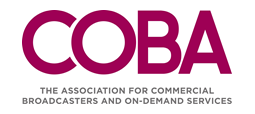Multichannel broadcasters invest more than £15m a year in new UK children’s programming – but proposals to change “prominence” regulation risk damaging this investment
Multichannel broadcasters invested an average of £15.6m per year over the last three years in new UK children’s programming, representing one of the biggest sources of investment in homegrown kids content outside the BBC, according to new research.
However, proposals to change the regulation of TV channel numbers could damage multichannel broadcasters’ ability to generate a return on their investment, and therefore undermine their investment in new UK children’s programmes.
The research was conducted by Commercial Broadcasters Association (COBA) as part of its response to Ofcom’s consultation on children’s content, which comes against a backdrop of declining spend on UK children’s content by commercial Public Service Broadcasters and growing competition from online services. The research found that investment in new UK shows from COBA members rose from £7m in 2015 to £23.5m in 2017, averaging at £15.6 million a year over the three year period.
Separately, however, Ofcom is considering proposals to change “prominence” regulation for children’s TV channels. These proposals could mean COBA members are forced to take lower positions in the TV programme guide, so that BBC children’s channels can take their places – despite the fact that BBC children’s channels are already performing successfully (top in their respective demographics). This would reduce audiences for commercial channels, and so reduce their ability to generate a return on their investment in content via subscription and advertising revenues. This would inevitably reduce their ability to invest in new programming.
Adam Minns, COBA’s Executive Director, said:
“Multichannel broadcasters are one of the biggest – if not the biggest – source of UK children’s commissioning outside the BBC and they do so without public support. This should not be taken for granted, particularly given growing competition from online services. We therefore ask policymakers to ensure that multichannel broadcasters are able to continue to make this investment and, crucially, not to damage their ability to generate a return on their investment. Since the BBC’s programme budget is determined by the licence fee, the net result of moving BBC channels up the TV guide and commercial channels down will be less investment in British children’s TV.”
Key findings from COBA’s research included:
- COBA members invested £15.6m a year on average over the last three years in new UK children’s content (2015 £7m; 2016 £18.4m; 2017 £23.5m).
- The investment is notable for including a high proportion of funding from international channels operated by COBA members, highlighting how many COBA members provide valuable overseas investment for UK production. Of the £15.6m, 74% comes from non-domestic channels related to the UK broadcaster.
- 2018 promises to be another significant year for investment, with major productions including Disney’s 101 Dalmatian Street and Sky’s Moominvalley already greenlit.
The investment includes a range of UK-made programmes that are shown across pay-TV channels, free-to-air, on-demand and online. Over the last three years, it includes such programmes as Cartoon Network’s BAFTA-winning animation The Amazing World of Gumball, currently in production on its sixth series; Disney’s First Class Chef, which aims to promote healthy cooking;; and Sky’s factual commission Ocean Rescue: Dive In & Do It, part of the broadcaster’s Ocean Rescue campaign.
Many of these shows are hugely popular with UK audiences. Disney’s UK drama The Lodge recorded the channel’s biggest ratings for a series premiere in over four years, and has been aired in over 100 countries worldwide including the US and Canada. Cartoon Network’s UK animation The Amazing World of Gumball regularly reaches more than one million children in the UK, and is a top performing show globally.
The BBC children’s channels are already performing successfully and do not need more prominence to reach audiences. The BBC itself told the Culture Select Committee that ‘children’s awareness of [its] children’s channels and digital channels is very high and CBeebies and CBBC are the first place they go.’ The BBC already has prominence for its linear channels, as well as the licence fee and cross promotional advantages with its other services and magazines.
Adam Minns added:
“As linear broadcasters, COBA members are already heavily-regulated and provide a safe, much-valued environment for children. The debate over the future prominence of public service broadcasters in the online world is an important one, and one where, as heavily-regulated linear channels oursleves, we share many concerns. But that important debate should not be conflated with television broadcasting, and end up inadvertently damaging children’s TV. The real issue facing the BBC is not its place in the linear world, but its relevance in the online space, which is a challenge that all linear broadcasters share.”
For further information please contact: Adam Minns, COBA Executive Director, adam@coba.org.uk or (020) 3327 4101
COBA is the industry body for multichannel broadcasters.
Notes
- Ofcom children’s content review looks at the range of UK children’s programming provided: https://www.ofcom.org.uk/consultations-and-statements/category-2/childrens-content-review
- The BBC gave evidence to MPs on the Culture, Media & Sport Committee about its children’s channels in 2013. See response to Question 116:https://publications.parliament.uk/pa/cm201314/cmselect/cmcumeds/730-i/131022.htm
